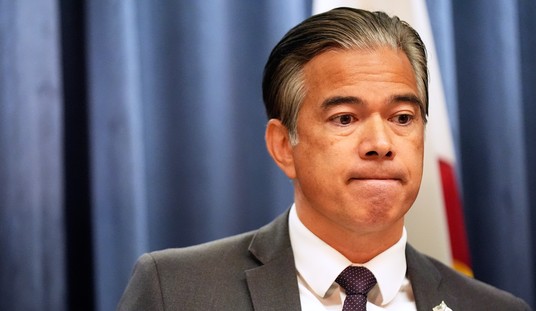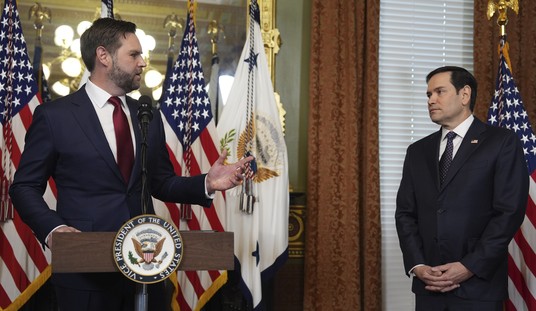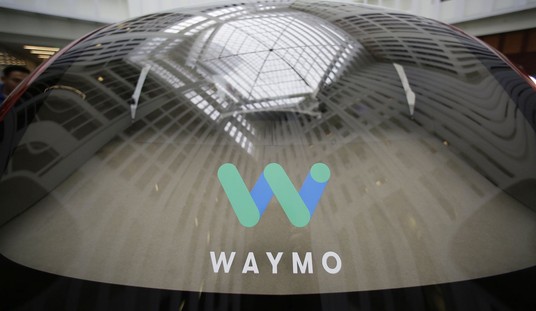Economic indicators are falling. The Fed issued a gloomy report on the future of the economy, saying that the so-called recovery may be “faltering.” Greece has only enough cash to make payroll for a few weeks before it defaults and flattens the European banking system. The only thing missing from a collapse is a good, old-fashioned bank run.
Enter Dick Durbin (h/t Ryan K):
Holding up a plastic debit card on the Senate floor this afternoon, Sen. Dick Durbin, D-Ill., had some advice for Bank of America customers angry about the new $5 monthly fee: leave.
“Bank of America customers, vote with your feet, get the heck out of that bank,” Durbin said on the Senate floor. “Find yourself a bank or credit union that won’t gouge you for $5 a month and still will give you a debit card that you can use every single day. What Bank of America has done is an outrage.”
Durbin said consumers are rightfully outraged about last week’s announcement.
“It is hard to believe that a bank would impose such a fee on loyal customers who simply are trying to access their own money on deposit at Bank of America,” he said. “Especially when Bank of America for years has been encouraging their customers to use debit cards as much as possible.”
Durbin unleashed this tirade in response to BofA’s use of the expression “Durbin rule” to explain the debit-card fee that will now be charged to users of that service. As ABC reports, taking money out of BofA won’t keep customers from getting charged fees for debit cards anyway. His bill capped the price banks can charge retailers, which means that they have to recoup their costs with the other party to those transactions. This is nothing more than an attempt to gin up outrageous outrage over Durbin’s own actions, which resulted in entirely predictable fee-shifting from retailers to consumers.
Meanwhile, Ben Bernanke told Congress that, in the words of McClatchy, “happy days are not here again”:
The weak U.S. economic recovery shows no signs of significant improvement and instead there’s an increasing likelihood of “more sluggish job growth” in the months ahead, Federal Reserve Chairman Ben Bernanke warned Tuesday in congressional testimony.
Appearing before the Joint Economic Committee of Congress, Bernanke was blunt. Happy days are not here again.
“Consumer behavior has both reflected and contributed to the slow pace of recovery. Households have been very cautious in their spending decisions, as declines in house prices and in the values of financial assets have reduced household wealth, and many families continue to struggle with high debt burdens or reduced access to credit,” Bernanke said. “Probably the most significant factor depressing consumer confidence, however, has been the poor performance of the job market. Over the summer, private payrolls rose by only about 100,000 jobs per month on average — half of the rate posted earlier in the year. Meanwhile, state and local governments have continued to shed jobs, as they have been doing for more than two years.”
The economy remains stuck in a negative feedback loop, he suggested in a grim outlook, where slow growth dampens hiring, which in turn keeps growth slow.
Bernanke’s outlook for hiring was gloomy, noting “recent indicators, including new claims for unemployment insurance and surveys of hiring plans, point to the likelihood of more sluggish job growth in the period ahead.”
Well, I guess Durbin thinks that a bank run will bring back the “happy days” of the Great Depression. And he may just be right, if anyone paid attention to Durbin’s fiscal advice.
Update: Via William Amos in the comments, BofA isn’t the only bank charging for the debit card:
Bank of America isn’t alone. Wells Fargo has made noise about a new $3 per month fee for debit card usage and J.P. Morgan Chase has signaled that they would impose a similar fee. …
The Durbin Amendment, named after Sen. Dick Durbin (D-IL), was added to the bill after flopping around for the better part of a year. The law applies to those big banks – the ones over $10 billion in assets – and was ostensibly passed as an effort to increase competition. It was supposed to be pro-consumer.
But here’s the kicker: the Amendment gave the Federal Reserve the power to regulate debit card interchange fees and other bits of banking admin, which they’ve done. Over the summer, the Fed released the final rule on the matter. The combination of fees, restrictions and caps is thought to cost banks subject to the amendment nearly $14 billion annually.
The banks could try to recoup this money from somewhere else – like merchants. But merchants now have the ability to shop around a bit more and of course, they could refuse to accept cards altogether. It was quicker, cheaper and easier for banks to go straight to the customer.








Join the conversation as a VIP Member